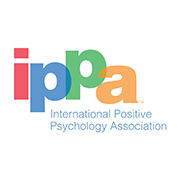Recent News
 Dr. Fredrickson honored with University Teaching Award
Dr. Fredrickson honored with University Teaching Award
These awards were created in 1998 by the family of the late J. Carlyle Sitterson to recognize excellence in teaching first-year students by a tenured or tenure-track faculty member in the College of Arts & Sciences. Lyle Sitterson was a Kenan Professor of History and Chancellor of the University from 1966-72 and was a passionate advocate for inspired teaching of first-year students. The first award was given in 2000. Two winners will receive a one-time stipend of $5,000 and a framed citation. Read more…
 Sweet vibes between longtime couples are tied to longer, healthier lives
Sweet vibes between longtime couples are tied to longer, healthier lives
Hold back on the bickering. Couples who share sweet moments filled with humor and affection, and sync up biologically — two hearts beating as one — enjoy better health prospects and live longer than their more quarrelsome counterparts, suggests new UC Berkeley research. The findings, recently published online in the Journal of Personality and Social Psychology, are based on laboratory observations of 154 middle-aged and older married couples as each engaged in an intimate conversation about a conflict in their relationship. “We focused on those fleeting moments when you light up together and experience sudden joy, closeness and intimacy,” said study author Robert Levenson, a UC Berkeley professor of psychology. “What we found is that having these brief shared moments, known as ‘positivity resonance,’ is a powerful predictor of how healthy we’re going to be in the future and how long we’ll live,” he added. Read more…
 Behavioral Indices of Positivity Resonance Associated with Long-Term Marital Satisfaction
Behavioral Indices of Positivity Resonance Associated with Long-Term Marital Satisfaction
Positivity resonance – defined as a synthesis of shared positive affect, mutual care and concern, plus behavioral and biological synchrony – is theorized to contribute to a host of positive outcomes, including relationship satisfaction. The current study examined whether, in long-term married couples, behavioral indices of positivity resonance (rated using a new behavioral coding system) are associated with concurrent shared positive affect using a well-established dyadic-level behavioral coding system (i.e., Specific Affect Coding System: SPAFF), and whether positivity resonance predicts concurrent marital satisfaction independently from other affective indices. These findings provide preliminary construct and predictive validity for positivity resonance behavioral coding, and highlight the possible role positivity resonance may play in building relationship satisfaction in married couples. Read more…
 We’re All Wired for Negativity – Here’s How to Keep Small Setbacks from Ruining Your Day
We’re All Wired for Negativity – Here’s How to Keep Small Setbacks from Ruining Your Day
Maybe you forgot to turn your slow cooker on before heading out on your hike, you had to endure a traffic jam that made you 20 minutes late to work, or a colleague made a passive aggressive comment in a meeting. Suddenly every minuscule inconvenience, from misspelled names on lattes to missing the elevator door, seems like a plot to incite your inner fury. When one small event throws a wedge into our day it can sometimes send us down a slippery, hours-long slope of exasperated huffs and cranky faces. But why is it so hard to shake the frustration or anger? The tendency to stew in this negative broth isn’t just common, it’s thought to be part of the human condition. In their 2001 study, psychologists Paul Rozin and Edward Royzman theorized that we tend give greater weight to the negative than the positive — it’s what’s known as “negativity bias.” Read more…
 Cultivating Kindness Through Meditation Can Slow the Aging Process, According to New Research
Cultivating Kindness Through Meditation Can Slow the Aging Process, According to New Research
What’s the biggest problem facing our nation today? Worries about health care lead the polls. But from a big-picture perspective, we’re arguably suffering from a deficit of love and kindness. New research finds a link between these practical and spiritual concerns. A new study reports that cultivating kindness through the practice of meditation may slow the aging process. In a small-scale study, a commonly used biological marker of cellular aging remained relatively steady among people who completed a course in loving-kindness meditation. Those who took a similarly structured course in mindfulness meditation did not experience the same positive results. Read more…
 With Kids, Love Is In the Little Things
With Kids, Love Is In the Little Things
That moment when your baby meets your reach to pick her up and molds to your body as you hold her. When your preschooler calls out to you, emphatically pointing at the crescent moon he discovered, and you join him in looking up at the night sky. Or when your fifth grader catches your proud gaze in the audience of other parents during her elementary school graduation ceremony. According to emotion scientist Barbara Fredrickson, these small moments are when love happens between parents and their children. Her research highlights that positive emotions like love, joy, and gratitude help us grow and become better versions of ourselves. While she used to think that all positive emotions were equally helpful, she has come to realize that love might be unique. Read more…
 Dr. Fredrickson Voted as Society for Affective Science President-Elect
Dr. Fredrickson Voted as Society for Affective Science President-Elect
Dr. Barbara Fredrickson, member of the SAS Executive Committee, has been elected to the post of the Society for Affective Science (SAS) President-Elect. The Society for Affective Science is dedicated to fostering basic and applied research in the variety of fields that study affect broadly defined. SAS holds conferences annually to showcase research drawn from psychology, medicine, neuroscience, computer science, law, economics, anthropology, linguistics, sociology, business, and other related fields. Dr. Fredrickson will serve as President-Elect of SAS in 2019, serve as President in 2020, and serve as Past President in 2021. SAS looks forward to the strengths and insights Professor Fredrickson will bring to her new leadership role. Read more…
 Loving-kindness meditation slows biological aging in novices: Evidence from a 12-week randomized controlled trial
Loving-kindness meditation slows biological aging in novices: Evidence from a 12-week randomized controlled trial
Combinations of multiple meditation practices have been shown to reduce the attrition of telomeres, the protective caps of chromosomes. Here, we probed the distinct effects on telomere length (TL) of mindfulness meditation (MM) and loving-kindness meditation (LKM). Midlife adults (N = 142) were randomized to be in a waitlist control condition or to learn either MM or LKM in a 6-week workshop. Telomere length was assessed 2 weeks before the start of the workshops and 3 weeks after their termination. After controlling for appropriate demographic covariates and baseline TL, we found TL decreased significantly in the MM group and the control group, but not in the LKM group. There was also significantly less TL attrition in the LKM group than the control group. The MM group showed changes in TL that were intermediate between the LKM and control groups yet not significantly different from either. Self-reported emotions and practice intensity (duration and frequency) did not mediate these observed group differences. This study is the first to disentangle the effects of LKM and MM on TL and suggests that LKM may buffer telomere attrition. Read more…
 Meredith College Names Dr. Fredrickson as 2018 Woman of Achievement
Meredith College Names Dr. Fredrickson as 2018 Woman of Achievement
Positive Psychology Expert Barbara L. Fredrickson, Ph.D., Meredith College’s 2018 Woman of Achievement, accepted her award and presented a public lecture on February 20. Meredith College President Jo Allen presented Fredrickson with the award in recognition of her work in the field of positive psychology. Allen said that Fredrickson’s work has informed the College’s StrongPoints program, a four-year plan in which each Meredith student participates. “StrongPoints calls on students to build on their individual strengths, and includes a focus on positivity that reveals the impact of believing in oneself,” Allen said. Fredrickson’s lecture, “Why Prioritize Positivity?” explored what positivity is and why this mindset is important. “Positivity is not always a ‘jump for joy’ form,” Fredrickson said. “There are also quieter moments when you feel grateful or at peace.” Among the most highly cited and influential scholars in psychology, Fredrickson is Kenan Distinguished Professor of Psychology and Neuroscience and director of the Positive Emotions and Psychophysiology Lab (a.k.a. PEP Lab) at UNC-Chapel Hill. Read more…
 Dr. Fredrickson Awarded 2018 $100,000 TANG Prize
Dr. Fredrickson Awarded 2018 $100,000 TANG Prize
UNC psychologist Barbara Fredrickson will be awarded the TANG Prize to honor her “exceptional contributions to the well-being of humanity” on Nov. 12 in Toronto, Canada. Fredrickson, the Kenan Distinguished Professor of Psychology and Neuroscience in the College of Arts & Sciences, is a leading researcher in the science of positive emotions. The $100,000 award is in recognition of Fredrickson’s achievements in psychology over her 25-year career. She has authored over 100 peer-reviewed articles, and her books Positivity and Love 2.0 have been translated in over 20 languages. Her “broaden-and-build theory” illuminates how positive emotions expand people’s mindsets and nourish lifelong growth. Fredrickson’s research suggests that our emotional habits and authentic emotional connections with others impact overall health. Read more…
 Dr. Fredrickson Awarded Cattell Fellowship
Dr. Fredrickson Awarded Cattell Fellowship
For over half a century, the James McKeen Cattell Fund has provided support for the science and the application of psychology. The Fund offers a program of supplementary sabbatical awards (”James McKeen Cattell Fund Fellowships”) up to $40,000. These awards supplement the regular sabbatical allowance provided by the recipients’ home institutions, to allow an extension of leave-time from one to two semesters. Dr. Fredrkcson was awarded a James McKeen Cattell Fund Fellowships for academic year 2016-2017. These awards provide an extended sabbatical period that allows the recipient to pursue new research. Read more…
 Dr. Fredrickson Awarded Inaugural IPPA Christopher Peterson Gold Medal
Dr. Fredrickson Awarded Inaugural IPPA Christopher Peterson Gold Medal
The Christopher Peterson Gold Medal represents the most important honor that the International Positive Psychology Association bestows. It is conferred to members whose careers exemplifies the best of positive psychology at the personal, professional, and academic levels. This award is named after Christopher Peterson, a beloved IPPA Fellow, professor, scholar and pioneer in the field of positive psychology. Peterson’s many scholarly contributions include his work on the character strengths and values classification and assessment with Martin Seligman. On a personal level, Peterson was known for his sincerity, humility, integrity, sense of humor and generosity. The inaugural Christopher Peterson Gold Medal was awarded to Dr. Barbara Fredrickson at the Third World Congress on Positive Psychology in 2013. Read more…
 Dr. Fredrickson Presents TEDx “Remaking Love”
Dr. Fredrickson Presents TEDx “Remaking Love”
Dr. Fredrickson is the Kenan Distinguished Professor of Psychology and Principal Investigator of the Positive Emotions and Psychophysiology Lab at the University of North Carolina. She is a leading scholar within social psychology, affective science, and positive psychology. Her research centers on positive emotions and human flourishing and is supported by grants from the National Institute of Health. Her research and her teaching have been recognized with numerous honors, including the 2000 American Psychological Association’s Templeton Prize in Positive Psychology. As part of TEDxLowerEastSide, held on October 25, 2013 in New York, New York, Dr. Barbara Fredrickson gave a TEDx Lecture, “Remaking Love.” In the spirit of ideas worth spreading, TEDx is a program of local, self-organized events that bring people together to share a TED-like experience. At a TEDx event, TEDTalks video and live speakers combine to spark deep discussion and connection in a small group. These local, self-organized events are branded TEDx, where x = independently organized TED event. Watch online…
 A Functional Genomic Perspective on Human Well-Being, PNAS
A Functional Genomic Perspective on Human Well-Being, PNAS
To identify molecular mechanisms underlying the prospective health advantages associated with psychological well-being, we analyzed leukocyte basal gene expression profiles in 80 healthy adults who were assessed for hedonic and eudaimonic well-being, as well as potentially confounded negative psychological and behavioral factors. Hedonic and eudaimonic well-being showed similar affective correlates but highly divergent transcriptome profiles. Peripheral blood mononuclear cells from people with high levels of hedonic well-being showed up-regulated expression of a stress-related conserved transcriptional response to adversity (CTRA) involving increased expression of proinflammatory genes and decreased expression of genes involved in antibody synthesis and type I IFN response. In contrast, high levels of eudaimonic well-being were associated with CTRA down-regulation. Promoter-based bioinformatics implicated distinct patterns of transcription factor activity in structuring the observed differences in gene expression associated with eudaimonic well-being (reduced NF-κB and AP-1 signaling and increased IRF and STAT signaling). Transcript origin analysis identified monocytes, plasmacytoid dendritic cells, and B lymphocytes as primary cellular mediators of these dynamics. The finding that hedonic and eudaimonic well-being engage distinct gene regulatory programs despite their similar effects on total well-being and depressive symptoms implies that the human genome may be more sensitive to qualitative variations in well-being than are our conscious affective experiences. Read more…
 How Positive Emotions Build Positive Health, APS
How Positive Emotions Build Positive Health, APS
The mechanisms underlying the association between positive emotions and physical health remain a mystery. We hypothesize that an upward-spiral dynamic continually reinforces the tie between positive emotions and physical health and that this spiral is mediated by people’s perceptions of their positive social connections. We tested this overarching hypothesis in a longitudinal field experiment in which participants were randomly assigned to an intervention group that self-generated positive emotions via loving-kindness meditation or to a waiting-list control group. Participants in the intervention group increased in positive emotions relative to those in the control group, an effect moderated by baseline vagal tone, a proxy index of physical health. Increased positive emotions, in turn, produced increases in vagal tone, an effect mediated by increased perceptions of social connections. This experimental evidence identifies
one mechanism—perceptions of social connections—through which positive emotions build physical health, indexed as vagal tone. Results suggest that positive emotions, positive social connections, and physical health influence one another in a self-sustaining upward-spiral dynamic. Read more…
 New York Times Editorial: “Your Phone Vs. Your Heart”
New York Times Editorial: “Your Phone Vs. Your Heart”
Can you remember the last time you were in a public space in America and didn’t notice that half the people around you were bent over a digital screen, thumbing a connection to somewhere else? Most of us are well aware of the convenience that instant electronic access provides. Less has been said about the costs. Research that my colleagues and I have just completed, to be published in a forthcoming issue of Psychological Science, suggests that one measurable toll may be on our biological capacity to connect with other people. Our ingrained habits change us. Neurons that fire together, wire together, neuroscientists like to say, reflecting the increasing evidence that experiences leave imprints on our neural pathways, a phenomenon called neuroplasticity. Any habit molds the very structure of your brain in ways that strengthen your proclivity for that habit. Read more…

